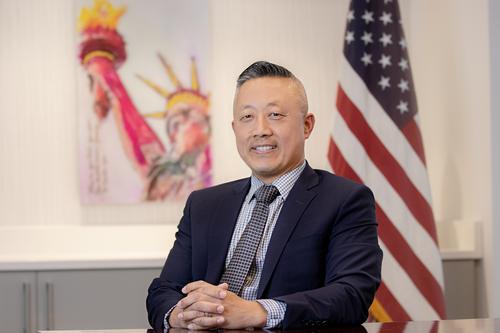The Violence Against Women Act (VAWA), passed by Congress in 1994, has created potentially helpful immigration benefits to spouses and children who have experienced or are experiencing abuse by an abuser who is a U.S. citizen or Lawful Permanent Resident.
Previous to the VAWA, many individuals felt trapped in their abusive relationships and didn’t feel that they had a way out. With VAWA, an abused individual no longer has to rely on their abuser to obtain lawful status in the United States. If you are in an abusive situation and interested in learning more about VAWA, contact Tucker, Nong and Associates today.
VAWA Requirements and Eligibility
There are various requirements to consider before applying for a green card through the Violence Against Women Act. In order to qualify, you must prove that you meet all of the following criteria.
Immigration Status of the Abuser
A basic requirement is the abuser’s immigration status; the abuser must be a U.S. citizen (USC) or Lawful Permanent Resident (LPR). If the abuse occurred before the abuser gained his or her current status, you may still file a petition under VAWA. If the abuser loses his or her citizenship or green card, you may also still apply. However, if the abuser lost status as a result of a domestic violence incident, you must file under VAWA within two years of the abuser using his or her citizenship status.
Relationship to the Abuser
Another determinate of your eligibility is your relationship to the USC or LPR abuser. In order to qualify for VAWA, you must be a spouse of the abuser or the parent of a child who was abused by your spouse. Even if the marriage ends because of the abuse, you can still file as long as it is within two years of the end of the marriage.
If the abuser has passed away, you have two years since his or her death to file a VAWA petition. If you choose to end your marriage after you have filed, there will be no effect on your petition. However, if you re-marry after filing, but prior to the approval of your VAWA petition, you could be denied.
Occurrence of the Abuse
The abuse must have happened during your marriage to the USC or LPR abuser. Although a police report is not a requirement, you still must be able to prove some type of abuse. The abuse can be physical, emotional, economic, sexual, verbal or any other form that harms you or your child. The list of qualifying abuse is extensive; consulting professional will help you determine this specific qualification. Proving abuse can be complex and it is recommended that you consult with a legal professional in order to determine if you have a valid case.
Good Faith Marriage
Your marriage with the USC or LPR abuser must have been made in good faith. If you entered your marriage with the sole intent of obtaining a green card or any other fraudulent reason, you will not meet the requirements to file a petition under the VAWA.
U.S. Residency
In order to petition for a green card under VAWA, you must reside in the United States, with little exceptions. One exception to this requirement is if you are living abroad because the USC or LPR is employed by the United States government or armed services. The abuse needs to have occurred in the United States.
Living Situation
As some point in time, you must have resided with the USC or LPR abuser. The length of time does not matter and you do not have to currently reside with the abuser. Even if you only lived with your abuser for a short time, you may still qualify to file under VAWA.
Good Moral Character
To qualify for a green card under VAWA, you must provide evidence that you are a person of good moral character. This will generally refer to your criminal record, past arrests or other illegal transgressions. If you do have a past record that could potentially affect your moral character, it is best to consult a professional who has experience with immigration laws.
We Are Ready to Help You!
The Violence Against Women Act (VAWA) has created helpful routes for abused persons to apply for immigration status without the knowledge of the abuser. As an applicant for the VAWA petition, you will need to prove that you meet all of the eligibility requirements, using written documents and/or statements.
Are You In Need Of An Immigration Attorney In Virgina, Maryland or Washington D.C.?
If you find yourself facing immigration issues you need to speak with an experienced immigration lawyer as soon as possible. Please contact us online or call our Vienna, Virgnia office directly at 703.991.7978 or our Rockville, Maryland office at 301.637.5392 to schedule your case consultation.

